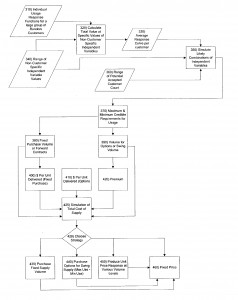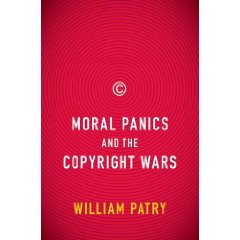Does Patent Reform Need Congressional Action?
The Coalition for Patent Fairness (CPF) has put out a memo trying to debunk what it sees as the myth that patent reform no longer requires congressional action. From CPF: “The Court’s ability to effect needed changes is limited because it is restricted by the language Congress enacted more than 50 years ago. Only Congress has the authority and the responsibility to ensure that our patent system is meeting the needs of the 21st century economy and the current need for economic growth and job creation.” (More here)

The Large Hadron Collider (LHC), outside Geneva, was shut down by a “bit of baguette” after a passing bird may have dropped the chunk of bread on an electrical substation above the accelerator, causing a power cut. Some physicists have formulated a theory that suggests a time-traveling bird was sent from the future to sabotage the particle accelerator. Bech Nielsen of the Niels Bohr Institute in Copenhagen and Masao Ninomiya of the Yukawa Institute for Theoretical Physics in Kyoto, Japan, have published several papers over the past year arguing that the CERN experiment may be the latest in a series of physics research projects whose purposes are so unacceptable to the universe that they are doomed to fail, subverted by the future. (via Time)
Congress May Be Helping European Biotech
European researchers are on the cusp of overtaking their American counterparts in biotechnology innovation. In 2004, European biotech firms had access to only 20% the private equity financing that U.S. firms had. Currently, the European Union has just about as many dedicated biotechnology firms as the U.S. Now, Congress is considering a bill that would allow drug companies to make knock-off versions of biologics much sooner than in Europe by allowing a data exclusivity period of just five to seven years. Biotech companies believe they won’t have enough time to recoup the hundreds of millions of dollars invested before having to compete with biosimilars. The biotech sector argues that the data exclusivity period needs to be at least 12 years to be competitive. (via WSJ)
Post-Grant Review System
The Innovation Alliance recently sent a letter to USPTO Director David Kappos outlining requirements for a post-grant review system that is designed for prevent delay and abusive challenges. The letter proposed that, in order to be fair to all parties, a post-grant review system must prohibit the ability of private parties to later challenge the validity of a patent in court on any grounds that the challenger: (a) Actually raised in a post-grant challenge; (b) Knew about but did not raise; and (c) Would have known through a reasonable search of the prior art as determined by the guidelines the Patent Office developed and already enforces in other contexts. (pdf)
Is The Practice of Medicine Impeding Innovation?
Citing the fact that the majority of patients receiving the personalized medicine drug Herceptin had not been previously administered Herceptin’s diagnostic test, the BiotechBlog asks whether the practice of medicine is capable of keeping pace with medical innovation. This is important since the diagnostic test can identify those patients most likely to benefit from the drug and exclude those who are likely to see no benefits. Are the gatekeepers unaware of how to effectively prescribe personalized drugs? (via IP Think Tank)
Hilter is Furious at the Supreme Court for Granting Cert to Bilski
Using the Hitler rant scene from Oliver Hirschbiegel’s 2004 film Der Untergang (“Downfall“), someone named patentlybilski made a spoof on the Bilski case, as though that case needs anything to make it more surreal. While this seems somewhat overdone, it’s amusing to those in the field. The poster notes only: “Tyranny, like hell, is not easily conquered; yet we have this consolation with us, that the harder the conflict, the more glorious the triumph.” Decide for yourself. (via 271 Patent Blog)



